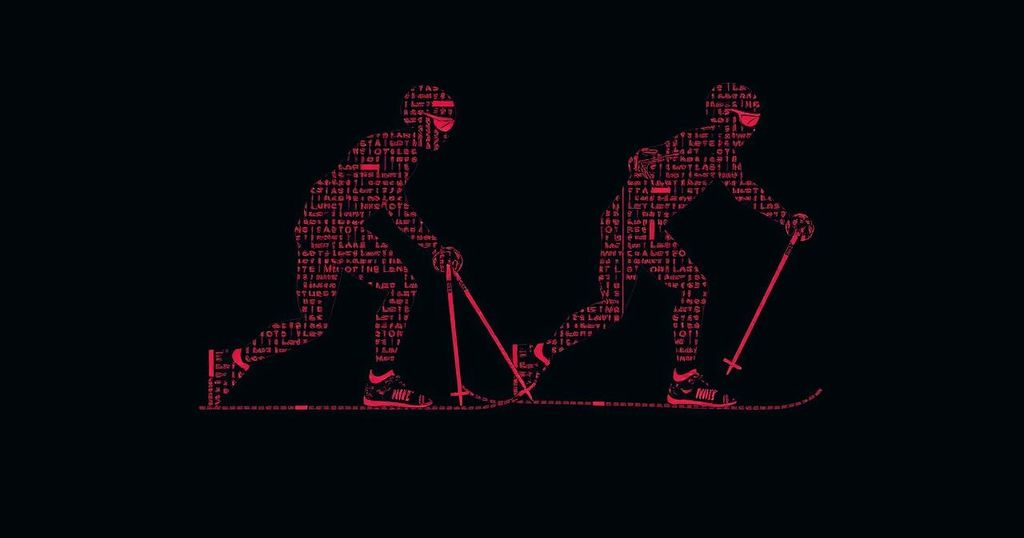Jordan Chiles Appeals to Swiss Supreme Court for Olympic Bronze Medal
Summary
Jordan Chiles, an American gymnast, has appealed to Switzerland’s Federal Supreme Court to reinstate her Olympic bronze medal, which was annulled by the Court of Arbitration for Sport (CAS) due to a late scoring inquiry. Despite evidence supporting her position, CAS has refused to reopen the case, prompting her legal team to seek a retrial and removal of an arbitrator involved. Chiles expressed her distress over the situation, citing broader implications for fairness in Olympic competition.
Jordan Chiles, the American gymnast whose Olympic bronze medal was recently annulled by an arbitration panel following the floor exercise final in Paris, has escalated her case to the Federal Supreme Court of Switzerland. This development follows a highly publicized and historic medal ceremony at the Summer Olympics, during which three Black women shared the podium, a first in Olympic gymnastics history. However, the triumph was overshadowed when an arbitration court ruled that a late inquiry concerning Chiles’ scoring, which had altered her final standing from fifth to third, was submitted too late. Despite assertions from United States gymnastics officials that they possess video evidence proving the timely submission of the inquiry, the Court of Arbitration for Sport (CAS) steadfastly declined to review the case. In subsequent proceedings, Olympic officials decided to reassign the bronze medal to Ana Barbosu of Romania, who subsequently received the medal at a ceremony held in Bucharest. Chiles’ legal representation now appeals to the Swiss Federal Supreme Court to mandate a reevaluation of the case by CAS. Maurice M. Suh, Chiles’ legal counsel, articulated this appeal, stating, “Jordan Chiles’ appeals present the international community with an easy legal question—will everyone stand by while an Olympic athlete who has done only the right thing is stripped of her medal because of fundamental unfairness in an ad-hoc arbitration process? The answer to that question should be no.” Chiles’ appeal seeks to overturn the CAS ruling and initiate a retrial, which would allow her to mount a defense and present evidence, including video footage that indicates her coach’s inquiry was submitted promptly. Initially, Chiles concluded the competition in fifth place with a score of 13.666, narrowly missing Barbosu’s score of 13.7. Chiles’ coach contested the judges’ scoring, resulting in an adjusted score of 13.766. However, in response to the Romanian gymnastics federation’s subsequent appeal, it was determined that the inquiry was filed four seconds late, reverting Chiles’ score back to its original tally. Gymnastics regulations necessitate that the final competitor of the event must submit inquiries within one minute of the initial score announcement. The negative impacts of this situation have weighed heavily on Chiles. She has expressed her emotional turmoil, stating that she endured considerable online harassment due to the controversy. At a Forbes summit, she remarked, “I feel like they just took that all away,” emphasizing her belief that all parties adhered to the proper protocols through the process. Furthermore, in her appeal, Chiles has requested the removal of arbitrator Hamid Gharavi from any future proceedings, citing that Gharavi is currently offering legal counsel to Romania in separate matters. The court confirmed that Gharavi had disclosed his involvement, and none of the parties expressed concerns regarding his role. Chiles’ legal team condemned the process, noting, “From start to finish, the procedures leading to the CAS panel’s decision were fundamentally unfair, and it is no surprise that they resulted in an unjust decision.”
The situation surrounding Jordan Chiles and her Olympic bronze medal reflects a complex intersection of sports, law, and ethics. The incident arose during the 2024 Summer Olympics when a last-minute scoring inquiry changed Chiles’ standing but was later ruled to have been filed too late. This led to an arbitration process that concluded with her medal being rescinded and awarded to another competitor. The accompanying media coverage highlighted broader themes of fairness and the integrity of sports governing bodies, particularly amidst allegations of systemic inequity. This case has prompted discussions about the processes by which disputes are resolved in the sports arena, and the potential for bias or procedural flaws during arbitration.
In conclusion, Jordan Chiles’ appeal to the Federal Supreme Court of Switzerland marks a significant effort to address perceived injustices within the arbitration processes that govern Olympic competitions. By seeking to overturn the CAS ruling and push for a retrial, Chiles not only champions her rights but also stands as a potential advocate for fairness and transparency within international sports governance. The support from her legal counsel and the wider gymnastics community illustrates the importance of equitable treatment for all athletes in the pursuit of Olympic glory.
Original Source: www.lakeshorepublicmedia.org








Post Comment